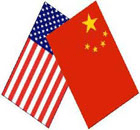Global General
WFP suspends Somali humanitarian operations
(Xinhua)
Updated: 2010-01-06 05:51
 |
Large Medium Small |
UNITED NATIONS:Due to rising security threats and attacks in southern Somalia, the World Food Program (WFP) has been forced to temporarily suspend much of its humanitarian operations, a UN spokesperson said here on Tuesday.
Staff members have been moved to safer areas to ensure that food still reaches the rest of the country, in addition to resources and equipment, Nesirky said.
"WFP is deeply concerned about rising hunger and suffering among the most vulnerable due to these unprecedented and inhumane attacks on purely humanitarian operations," said a WFP statement.
According to the statement, WFP is looking to "pre-position supplies" in order to provide assistance in the case of any population movements within Somalia or across the country's borders into neighboring countries.
The statement said that "even in good years," Somalia can only meet 40 percent of its population's food needs through internal production.
"Staff safety is a key concern for WFP and recent attacks, threats, harassment and demands for payments by armed groups have decimated the humanitarian food lifeline, making it virtually impossible to reach up to one million woman and children and other highly vulnerable people," the UN agency said in the statement.
The Horn of Africa nation has been without an effective central government for more than two decades, leading to deadly cycles of clashes between rival factions.










